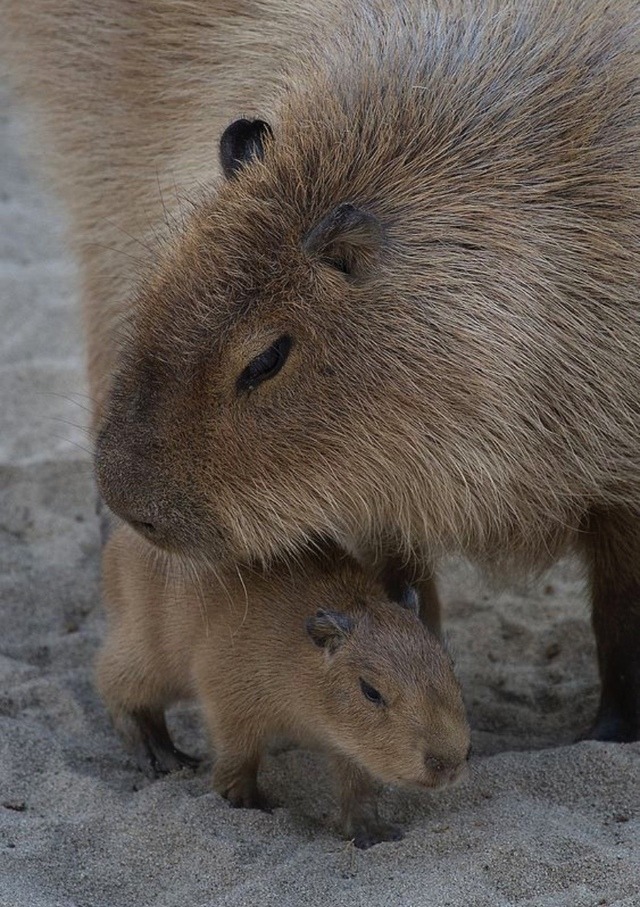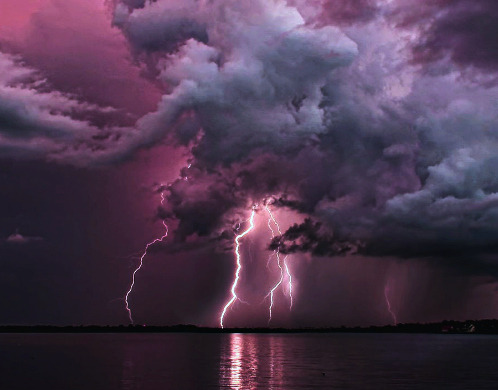


















*Thanks, John.



















*Thanks, John.
I cost nothing to run so donate to https://www.broadcastingscotland.scot/donate/
The bilingual blog about all things British
Love, theatre and ideas
British Wildlife & Photography
Why Scotland should be an independent country
Thoughts about Scotland & the world, from a new Scot
Bipartisan dialogue for the politically engaged
Impartial Everytime Always
We Provide The Facts, You Make The Decisions
Exploring Rhymes, Reasons, and Nuances of Our World
Mark Doran's Music Blog
Songwriter / Guitarist
This site supports Scottish Independence
A comic about history and stuff by FT
The embittered mumblings of a serial malcontent.
an irreverent look at UK politics
Exploring the Depths of Curiosity
Nature + Health
http://netbij.com
Movies, politics, comedy and more...
Aw, the last photie hasn’t come out right. I’ll look out for it later, once Tris has fixed it.
Tris, very life-affirming indeed this week. Happy to have a wee orangutan looking a bit startled. The beluga is ace. We have to do something to stop fouling up our planet… what kind of species is stupid enough to foul its own nest? No, no need to answer that.
The Russian says – loose, idiomatic translation – “We’ll just warm her up and we’ll be right out of here”. Harks back to the old Soviet Propaganda of Success. One more push, Comrades!
Russian pessimism: “Things could not possibly get any worse.” Russian optimism: “Oh yes they could.”
LikeLiked by 3 people
I’ll go have a look at it, Ed.
Thanks for the translation. Pretty neat.
No answer to the fouling nest question. But they would have to be pretty stupid and pretty lowlife.
LikeLiked by 1 person
Hopefully fixed, Ed. What a nightmare. For a little while, I lost the whole damned post!
LikeLiked by 1 person
Amazing picture of the bear behind the pole! Is the bear face on the pole an accident? Seems too perfect to be a coincidence.
An American Bison is always nice. And the bright Iceland aurora.
I was first looking at the water instead of the swan. The Swanee (Suwannee actually) River, with music on the highway sign:
LikeLiked by 2 people
I doubt if it’s 100% natural… but strange things do happen.
The Suwannee River looks very beautiful.
LikeLiked by 1 person
Tris…..It’s really quite a pretty river. It’s headwater is the Okefenokee Swamp in south Georgia, and it flows south-southwest across the Florida panhandle and empties into the Gulf of Mexico. It flows through heavily wooded wetlands with lots of Spanish moss hanging from the trees. We crossed it on a trip to southern Florida. Really pretty!
Stephen Foster was from Pittsburgh and never saw the river. His brother picked the name out of an atlas, and Foster deliberately misspelled it with two strong syllables to better fit the melody. “Old Folks at Home” (“Way down upon the Swanee River”) is the official state song of Florida. There’s no evidence that George Gershwin or Al Jolson ever saw the Swanee either. 😉
LikeLiked by 1 person
Well, I suppose you don;t need to see something to sing about it.
Swanee, how I love ya, how I love ya (although I’ve never seen ya)
LikeLiked by 1 person
That’d make a nice second verse. 😉
LikeLiked by 1 person
I can’t see the last picture either – tragedy! Funnily enough I’d seen the beluga and was going to post it here but thought I might give Danny cute critters’ overload!
Loved the baby chimp or is it a bonobo? Without seeing it or mum move I can’t tell. They are our closest relatives. We share 98.8% DNA though interestingly (that word might be doing some heavy lifting for the non scientific among you) they have one more pair of chromosomes than us – 24 versus 23 as we fused two of them.
How lovely to see a sea otter again. I must say I’m not keen on that boys’ necklace, though I do admire his sang froid. That bison looked rather cosy in his coat – been really cold in Scotia this week. I saw a long term forecast that predicted another Beast from the East in the New Year – Edvuard Munch screaming face…
LikeLiked by 1 person
“Autumn walks are best”
Have you been up to the Findhorn River in the last day or two? There is a section of the Sluie cliff walk looking like that at the moment.
Yeah, Autumn is the bestest!
I take it dogs are not allowed on the Subway.
LikeLiked by 2 people
That prompted to look at some pics of the Findhorn River…
Beautiful.
Hmm… Maybe that the reason, or maybe he had tired wee legs.. The only interdiction I know about subways, is you’re not supposed to sleep in them…
LikeLiked by 1 person
That’s Petula talking. Singing rather.
LikeLiked by 1 person
You know your pop music, Conan.
LikeLike
They have bisons too in the Midlands,except their ones are usually kept in bathrooms and kitchens.
LikeLiked by 4 people
Eww, Yowm prtitty shorp thire!
LikeLike
LikeLiked by 1 person
My rusty attempt is:
“time for *SOMETHING* and poetry”
Found the misssing word online
прогреть – to warm up
So, something like (or nothing whatsoever like)
“time for warmth and poetry”
Everyone together:
seychas progreem e poedem
LikeLiked by 2 people
I’d say the poetry was poetic justice.
If you leave your car outside in the middle of a russian winter…
Jeez, it makes me feel cold in the centrally heated and luxurious appointments of the basement at Munguin Towers!
LikeLiked by 2 people
Good transliteration, Terry, but I don’t get the poetry!
So – here beginneth the Russian lesson for all receptive Munguinites this fine Sunday morning! I have set out this time to bore you all – witless.
Here’s my explanation of that Russian caption, with a bit of an explanation of how it works.
The first word, seychas / сейчас / say-CHAS breaks down into two elements; the first is an otherwise defunct form mean “this here”; the second, “chas”, is hour (in various more and less extended senses); so, “this very hour”, i.e., right now, right at this moment, immediately; it signals immediate present, in the immediate, and thus immediate futurity as we all flow facing forward along the great river of time [Enough of the poetic waxing. The people don’t like it. – Ed.]. There’s another word, teper’ / теперь / t’e-PYERR’, which is a more general “now”, as in “Once upon a time he was a fit young dandy, but now he’s a slovenly old lush”.
The second word, progreem / прогреем / pra-GREY-yem has two elements as well, the prefix pro- and the first person plural form of the verb whose (perfective aspect) infinitive is progret’ / прогреть / pra-GREY-t’. That last ‘ apostrophe reflects the “soft sign” (myagkiy znak / мягкий знак / except it’s pronounced MYAKHkiy znak, not MYAGkiy znak, which is sort of something like what happens in Ukrainian. [Oh no you don’t. Don’t start on that, or you’ll get onto telling them that Edward Heath was called “Eduard Git” in Russian. – Ed.].
The soft sign palatalises the hard dental T into into a softer ch, sort of like the sound in -oh – “suture” or “future” in English, except with the tip of the tongue against the top teeth. You’ll see it in other Slavic languages as ć in Polish and Croatian, for example, ћ in Serbian Cyrillic. The Polish cognate of the Russian gret’ / греть is grzać / gzhat’, for example.
The third word is и / i, pronounced like the Spanish “y” which means “and”, and like the Spanish “y” it also means “and”. The sound has to be short, not like the ee in queen or bee.
The last word – poedem / поедем / pa-YAY-dyem has two elements again: the prefix po-and the first person plural perfective edem / YAY-dyem, i.e., an immediate future tense. The verb is from a verb (or verbs!) of motion which is, how shall I say, a tad irregular. It means to move, travel, go but in a vehicle, not on foot. The infinitive (perfective) form of that one is poekhat’ / поехать / po-YEAH-khat’, to travel. Russian verbs of motion are a pain in the proverbials, frankly. All of them. This one breaks down to “we shall go / be off / depart in the immediate future (in our car)”.
The prefix po- is used to (a) make a verb perfective; (b) it can also be used to indicate just a little whatever. Steal a glance at someone rather than look at them, that sort of thing.
The vowel sound in “po-” has nothing to do with chamberpots, except the sound is like the O in American “pot”, without the t, of course, in most of Russia, but is like English “pot” in places such as Nizhny Novgorod, which is where the rather grim novelist Maxim Gorky was from, i.e., the one Gorky Park is named after. Nizhny Novgorod, you will be disappointed to learn, means “Lower Newtown” in Russian (possibly). On the other hand, the original Novgorod is one of the oldest cities in Russia. The two ways of speaking – this applies to unstressed O sounds only – are called оканье / okan’e / AW-kanye and аканье / akan’e / AH-kanye.
Alert Munguinites (which is all of you) will note that there is a soft sign after the N in those two words. As elsewhere, it palatalises the N to the sound at the beginning of “new” in BritEng – and like Spanish “n” and “ñ”.
I bet you all need a lie down already. I hear the bell. Class dismissed!
LikeLiked by 2 people
Did you ever think about teaching languages… you’d be a natural!
I’ve always swaid, make a lesson like a show, preferably a mixture of funny and informative.
You didn’t read my thesis did you?
LikeLiked by 2 people
Your thesis, Tris? Tell us more!
As a matter of fact, I have turned my hand to language teaching on occasion; from an assistantship year in a lycée in the Lot-et-Garonne, teaching English at summer schools for furrin schoolkids in England a couple of summers to help me get through university finally, slipping in English language teaching into my conversations with furrin friends on facebook, teaching my best bro’s graduate students in Casablanca. I’ve never taught anything but English, though.
LikeLiked by 2 people
Great stuff, Ed. Interesting to compare with my attempts to come to terms with Bulgarian. We have a lotof words in common with Russian and one of my favourites has cropped up here: snak (snow) pronounced ‘shnack’ (at least in my part of Bulgaria) and almost exactly the same as the Gaelic ‘sneachd’ (pronounced ‘shnyachk’ with the n taking the Spanish ng sound and the ch as in loch). I’m always pleasantly surprised to come across a new (to me) Bulgarian word that corresponds with Gaelic. Another is ‘sapun’ (soap) which again is much the same as the Gaelic ‘siabunn’.
LikeLiked by 3 people
Snak in Bulgarian = snow in English. Russian for snow is sñeg / снег / sñek (final consonants lose voicing, so g goes to k, v goes to f – that’s why you’ll see spellings such as Prokofieff for Prokofiev). In the genitive case, though, снег becomes снега / SÑEga, and it reverts back to g – which it wouldn’t if the nominative case were written with a k / к, as in – oh – znak / знак, genitive singular znaka / знака, which means sign, symbol, glyph, as in soft sign, myagkii znak / мягкий знак /MYAKHkii znak, which becomes myagkogo znaka / мягкого знака / MYAKHkovo ZNAka, i.e., no change from k to g.
Resources: multitran online bilingual dictionary. Have a look at https://is.gd/AuAeO0, which is the entry for znak / знакa into English. It’ll give you some idea of what’s involved in translating into English from Russian.
Ooh, and I just found this thing about Russian declension patterns in Wiktionary: https://is.gd/QnRXOB. It seems to be a table for computing noun declensions of Russian nouns. It’ll give you some idea of the degree of complexity. And no, Russian native speakers don’t get them right all the time either – you get to recognise the sudden blank expression when your interlocutor hits up against the sudden hole in his grammar where a peculiar genitive plural form should be…
Huh. It’s even got an entry for мягкий знак – https://is.gd/RAtdrV – with the IPA and all: [ˈmʲæxʲkʲɪj ˈznak]! It also has a drop-down menu with the whole declension, with stress marks. I could have used that earlier. Double huh.
LikeLiked by 1 person
Oh… complex if you have no understanding of Russian.
LikeLiked by 1 person
Yeah – but if you think about it, the relationship between Bulgarian snak and Russian sñeg is almost the same as between standard Scottish English and the lenguage as she is spoke in Morningside / Kelvinside – where the native population used to buy their coal in sex before everyone went smokeless.
LikeLiked by 1 person
Well, doesn’t Morningsied sound fun?
LikeLike
Not, in fact, unlike “savon” … (Fr)
LikeLike
Researched language teaching methods, Ed.
LikeLike
That’s terrific! With your permission I would like to tell my best bro in Morocco about you. He’s head honcho of English at his university in Casablanca and is working on introducing MOOCs and the like. I just edited some stuff for him about new teaching methods.
What a small world.
LikeLiked by 1 person
By all means, Ed.
LikeLike
Great stuff – cute capybara again. I thought the sea otter was calling, “Come on in – the water’s lovely!” I’ll defer, of course, to Ed’s knowledge of Russian but I’d initially thought it might mean, “I think we might need to give her a bit of choke to get started.” Oh, if that rabbit on the guy’s back is male does that mean he’s wearing a buckpack, not a backpack?
LikeLiked by 4 people
🙂
LikeLike
Ouch!
LikeLike
Ditto!
LikeLike
that’s a hare raising pun Andi!
LikeLiked by 3 people
🙂 PP
LikeLike
Double ouch!
LikeLike
Has anyone noticed that Beluga is both a whale, and disgusting black fish eggs that for reasons surpassing human understanding, some people eat?
Why would a small, white-toothed whale related to the narwhal, living in herds mainly in Arctic coastal waters, have the same name as a very large sturgeon occurring in the inland seas and associated rivers of central Eurasia?
A quick Google search is surprisingly silent on this issue.
LikeLiked by 1 person
OK……Upon further study…..here it is:
“beluga”…….
From the Russian белу́га (belúga), from бе́лый (bélyj, “white”).
In modern standard Russian, белу́га (belúga) denotes the fish (“European sturgeon”) only, while белу́ха (belúxa) denotes “white whale”.
So it’s a failure of the English language to properly convey the subtleties of modern standard Russian.
LikeLiked by 2 people
(Cough) It’s a failure of English English speakers (and Americans too, Danny, sorry), and those who speak English for colonial and other reasons to speak their own language properly. Those of us who speak (more and less) Standard Scottish English, which is by far the best kind, of course, all roll our eyes and sigh loudly every time an English English speaker opens her mouth and offers up such (cough) abominations as “Lock Lomond”, and yawn over those language lessons which insist on the impossibility for all English speakers of pronouncing “ich” and “auch” in German without spending at least 10 years in a country where German is spoken.
That speech defect, shared by far too many speakers of English, is the reason белуха / b’elukha became beluga: the poor sods were simply incapable of pronouncing the word properly.
Similarly, the inability of English (talk to me not of Bristolians, nor Dorsetshire) English speakers to prronounce theirr rrrrs leads to constant orthographical errors such as “The Lizard is a peninsular” and “You’ll find the cutlery in the kitchen draw”.
You just have to feel sorry for the poor buggers, don’t you? And they say WE talk funny!
LikeLiked by 3 people
Ed……Excellent! Interesting and informative! Glad to know about the Beluga thing.
I’m mostly defeated by non-American pronunciations. I imagine myself clearing my throat for the “ch” in Loch Lomand, but it still pretty much comes out “Lock.” I do slightly better with the German “ich” and “auch”. I think that JFK did an “Ish” at the Berlin wall in “Ich bin ein Berliner.”
Midwestern American English is particularly problematic in its super hard rrrrr’s, which are as bone-chillingly R-like as any sound on earth. I’m incapable of trilling the R, but can make a stab at the guttural R for purposes of French pronunciation. England-English speakers with posh accents (such as Shakespearean actors and BBC presenters) have a way of swallowing the R such that you hardly hear it.
The French combine the R with an E to form a “re” ending to words, which is a big problem. Americans often pretend that the “re” is not there, and pronounce “quatre” as “cat” or “cot” for example. “L’Orchestre de Paris” sounds lovely from a native French speaker, but an American must not even attempt it. 😉
And that brings us to the ultimate impossible American pronunciation in Scottish-English. It’s the “rgh” of Edinburgh. Scots seem to sort of trill it, yet to me it sounds like it gets cut off in mid-trill, with the R somehow combined with a drawn out “gh.” The best I can do is simply Edinburro.
In the USA, Pittsburg and Pittsburgh are pronounced identically, whereas, (I think) in England-English, Pittsburg would be Pittsburg, but Pittsburgh becomes something like Pittsburro. THUS……we often have Americans proclaiming that Philip is the Duke of “Edinburg” (or “Edinberg.”)
Wish I could actually pronounce Edinburgh. 😉
LikeLiked by 2 people
PS:
I’ve only recently become accustomed to the (apparently Scottish) idea of “without” being an antonym of “within.”
NOW it seems that “outwith” is also a word in Scotland.
“It’s clear from the contexts that outwith means something like “outside of”; and from the sources, it’s evidently a feature of Scots English. The OED says that it’s “Now chiefly Sc.”, and glosses its first sense as “1. Outside. a. In a position or place outside of; … b. To a position or place outside of”
“Merriam-Webster’s Unabridged glosses it as
1. chiefly Scotland : outside of : out of
2. chiefly Scotland : EXCEPT”
It’s not even new. It’s been used in poetry as early as the 14th and 15th centuries.
http://itre.cis.upenn.edu/~myl/languagelog/archives/003262.html
So how is “outwith” different from “without,” in the sense of “outside of?”
LikeLiked by 1 person
“Outwith”, as described; “without” as in normal English usage, but not ever in the meaning of “outwith”. You would never says “The auld blellum went oot in the cauld an the snaw outwith his jaicket an deed o pleurisy”, because that would mean that somehow the eejit was wearing his jacket internally; the churchy biblicalish “without a city wall” would mean the place was not circumvallated.
LikeLiked by 2 people
Thanks Ed…….But I’m left with sources which seem to indicate that in normal English usage, the word “without” can also serve as the antonym of “within” to mean “outside of.” Which indeed seems to make it identical to the Scottish word “outwith.”
From Merriam Webster:
Definition of without
1: OUTSIDE
2—used as a function word to indicate the absence or lack of something or someone
fight without fear
without (adverb)
Definition of without
1: on the outside : EXTERNALLY
2: with something lacking or absent
has learned to do without
Definition 1 would seem to indicate that “WITHOUT his jaicket an deed o pleurisy” COULD be grammatically identical to “OUTWITH his jaicket an deed o pleurisy”……BOTH suggesting some sort of wearing of the jacket internally.
Or equivalently, that by the same definition, “without a city wall”, in addition to possibly meaning that the place was not circumvallated, could equally well indicate a location OUTSIDE OF the circumvallation of the circumvallated city. 😉
So I’m still thinking that “without” and “outwith” can be equivalent words in Scottish usage at least. (The sources suggesting that “outwith” is Scottish usage, equivalent one definition of “without” in normal English usage.)
LikeLiked by 1 person
Well, Danny, I’m not one to argue with dictionaries, certainly not Websters!
But I’ve never heard (apart from in England, or in that hymn) “without” meaning “outside of”. Only ever “not having”.
Just personal experience.
LikeLiked by 2 people
Tris…..Me neither! Therefore I was surprised at the “outside of” definitions for BOTH “without” and “outwith.” Seemed very strange. 🙂
LikeLiked by 2 people
I think “without” meaning outwith is both archaic and rare. Let us consign it to the dustbin of history, Danny and Tris!
On the subject of the dustbin of history, do you think it ever gets emptied?
LikeLiked by 2 people
Ah, I just thought of something, and I think it may be the answer to our outwith / without conundrum: “outside” and “inside” generally – almost always, I’m thinking – refer to physical locations – “I was inside / outside the chicken coop playing the sitar”, for example – whereas “outwith” and “within” are used for abstract, non-physical things: e.g., outwith Edinburgh (lines on a map, city boundaries).
A bit late in the day for that to occur to me… when I was translating treaties and that sort of thing, I fairly frequently wished I could use “outwith”: French “en dehors de la portée du traité”, which as you can imagine came up a fair amount in my work, cannot be translated as “outside the scope of the treaty” because it jars somehow, and it does so because with “outside” we expect a physical location. In English that phrase has to be translated (by me, anyway) by negativizing it to “not … within”: “x does not fall within the scope of the treaty”.
I postulate that English English and AmEng lost “without” as the counterpart of “within” somewhere along the line because it clashes so badly with the other “without” – a clash everybody could well do without (I should apologise for that one, but I’m not going to). Scots, however – both the people and their language(s) – get round that little difficulty by transposing the order of the elements of the “not … within” “without” to “outwith”. Very sensible, rather elegant, and quite creative.
As one would expect.
LikeLiked by 2 people
I knew you’d have the answer.
LikeLiked by 1 person
That works for me! Very sensibly resolves the without/outwith problem! 🙂
LikeLiked by 1 person
It’s not, I think.
It’s just what we say in Scotland.
I always thing of without as meaning “not having” as in “He is without any means to feed and clothe himself”, meaning he hasn’t got any money.
I always used to wonder at the English English when, at school, we had to learn the hymn… There is a green hill far away without a city wall… I was thinking, why wouldn’t the green hill be without a city wall? After all, how many hills, green or otherwise, have walls?
LikeLiked by 1 person
Perfectly sensible! That is, the part about green hills not having walls. Learning hymns in school…..not so much. 😉
LikeLiked by 2 people
Yes, it was a total waste of time, Danny.
LikeLiked by 1 person
If you say “Edinburgh” fast enough and conversationally sloppily enough, it comes out as “Embra” (EMbra).
LikeLiked by 2 people
I can do fast and sloppy.
But Embra does lack that signature Scottish “rgh” sound. 😉
LikeLiked by 2 people
“Burgh” = English borough, pronunciation “BUrru”, the U vowels being short as in “butter”.
LikeLiked by 2 people
Thanks Ed…….And if only other peoples could execute that “BUrru” sound that makes the pronunciation so quintessentially Scottish. 🙂
LikeLiked by 1 person
There is one classification which applies to all forms of English, and that is whether they are rhotic or non-rhotic. The distinctive feature is whether post-vocalic, pre-consonantal and word-final Rs – e.g., sword, third, burn, farmer, star – are pronounced as Rs, or whether they and the preceding vowel are perceived as single phonemes . RP (Received Pronunciation) English is non-rhotic, and the vowel sounds in earth, bird and burn are a single phoneme with effectively the same sound, and no R, trilled or otherwise; in rhotic forms of English, the most famous of which is Scottish English, there are two phonemes, the vowel plus the R.
In Scottish English the vowel sounds in earth, bird and burn are different, and the vowel sounds in “barn” and “ban” are the same. By that I do not mean that the vowels in “barn” and “ban” are exactly identical acoustically, because they’re not: the way anything is articulated is modified by what comes before and after. However, your Scottish English speaker analyses barn/ban as the phoneme /a/ followed or not followed by /r/, whereas in English English it’s a contrast between two different vowel sounds of differing lengths – and the R is simply not there any more except in the spelling. It’s non-rhotic, in other words.
American English – all dialects – is rhotic, but the R is usually retroflex, i.e., the tip of the tongue points backwards towards the hard palate.
Danny, I hope that clarifies it, and also that my description of AmEng strikes you as correct. Oh – I forgot an exception – I forgot about parking my car in Harvard Yard.
LikeLiked by 2 people
That explains why the R seems to disappear in posh accent English.
I’ll just have to give up on ever pronouncing the “burgh” of Edinburgh in the proper Scottish way.
Non-rhotic Boston English is easy. It’s simply: “Pahking in Hahvahd Yahd.” 🙂
LikeLiked by 1 person
By jove I think he’s got it.
LikeLiked by 1 person
Brilliant, Ed.
LikeLiked by 1 person
Aye, it’s all a bit of a problem this pronunciation.
Of course people talk about English or Scottish,, French or German accents but of course there are so many of them.
Just 20 miles up the road from Dundee, the accent is quite different. In England the difference between the London accent and the accent of Oxford a short distance away is enormous.
In some parts of France they do swallow half their words, in some places the r is guttural and in some places it is trilled..
In Germany some places say Ich for I and some say Ish.
And heaven knows how someone from Maine could ever understand someone speaking New Joysee, or ….Texan!!!
That’s what makes it interesting though. Would it not be deathly dull if we all spoke the same way?
It is, of course, these things
II worked
LikeLiked by 2 people
Pronounce – Dultulich
No your wrong, it’s dultlach , said very quickly. When I first moved to rural Moray, it surprised me how words were spelt because so many were pronounced with a whole raft of consonants missing.
LikeLiked by 3 people
Took me a while to realize that Worcestershire is Wooster. Suddenly I could pronounce the sauce. 🙂
LikeLiked by 1 person
You can now order it to go with your Escargot…
LikeLike
Indeed! A sauce still made in Worcester at a plant that John Wheeley Lea and William Henry Perrins built…….according to Wiki.
https://en.wikipedia.org/wiki/Lea_%26_Perrins
LikeLiked by 1 person
Wooster sauce is better in things than on things, and in small doses. I used to use it a fair amount in meat dishes such as stews and mince. Can’t think what else offhand. I never did like Bloody Maries.
Danny, mince is ground beef in America, though I expect you knew that already.
LikeLiked by 2 people
I’ve got a mate who [puts Worcester Sauce in everything….well, not custard.
LikeLiked by 1 person
Ed…..We certainly have mince pies in the States….more often called mincemeat pies here in the Midwest. We seldom mince words BTW.
I’ve never used Worcestershire sauce in a Bloody Mary, which I will often order as a Virgin Mary and enjoy a nice glass of tomato juice with garnish. 🙂
As for mince, I tend to prefer my ground beef in the form of hamburgers, and non-ground beef as a big slab of Aberdeen Angus beefsteak. For a zesty steak sauce, I actually prefer A.1 Sauce, which also has British roots. Wiki says that “Henderson William Brand, a chef to King George IV, created the original sauce on which A.1. is based.” That the King himself declared it to be “A-1” may be a myth. It’s been marketed in the UK since 1831 and sold as a steak sauce in the USA since 1906. A.1 Sauce is often found on the grocery store shelves close to Lea and Perrins Worcestershire and other such concoctions.
https://en.wikipedia.org/wiki/A.1._Sauce
LikeLiked by 2 people
Well, there’s a thing. I’ve never even heard of A1 Sauce, but I searched and here it is, at Tesco!
https://www.tesco.com/groceries/en-GB/products/279215244?sc_cmp=ppc*GHS+-+Grocery+-+New*PX+%7C+Shopping+GSC+%7C+All+Products*New:+F%26D:+Food+Cupboard:+Food+Cupboard*PRODUCT_GROUP279215244*&gclid=CjwKCAiAws7uBRAkEiwAMlbZjokMUpffBozH8rzBI5msCDWScxGTvLMpuNaQiSAEP4DO6rK6Rq8duxoCVjUQAvD_BwE&gclsrc=aw.ds
LikeLiked by 1 person
Hm. Mince pies… I was very distressed when I were a lad to discover that mince pies did not have mince in them, but instead held mincemeat … all terribly confusing!
You’ll have heard of mince and tatties, I expect – a Scottish staple – but “mince” is used in quite a lot of other circumstances which have nothing to do with ground beef. E.g., “His heid’s aa mince” = his brains are addled / scrambled / dementing; dinnae talk mince = do cease spouting balderdash and twaddle, old chap.
LikeLiked by 1 person
Or… see that Munguin’s Republic? It’s a pile of Mince!
LikeLiked by 2 people
Ed……Mince and tatties looks very good. Yes, mince is a word used in a variety of ways. When it relates to the softening of speech to make it less offensive or direct, it’s more often used in the negative, as in “he does NOT mince words.”
LikeLiked by 2 people
It’s been a while since I spotted any A-1 sauce on the shelves of any supermarket; I shall keep an eye open for it.
LikeLiked by 2 people
Ed……Apparently A.1 is not as widely available in the UK these days as it once was. Wiki says “Although the sauce is widely available in the U.S. and Canada, in the UK it is currently sold only by Tesco, Costco and Ocado.” It’s everywhere in the States, from grocery store shelves to restaurants. I’ve never known a restaurant that serves steaks that doesn’t have A.1. sauce available. For a savory-flavor steak sauce with an entirely different flavor, “Heinz 57” is a big brand. Lea and Perrins Worcestershire is just out of sight here on the next shelf up.
In 2014, A.1. Steak Sauce (as it had always been marketed in the States) was renamed A.1. Sauce, and it now has the word “Original” on the label, replacing “Steak Sauce.” “Est. 1862” apparently refers to the company that first imported and distributed it in the States. Its origin in England was decades earlier.
LikeLiked by 1 person
According to my researches, this is indeed true, Danny: both Tesco and Ocado. Expensive stuff, though!
LikeLiked by 2 people
I’ll look the next time I go to Tesco (which I don’t regularly, Aldi being vastly superior and half the price).
LikeLike
LOL, Ed.
LikeLike
We are getting right into the Russian stuff now, aren’t we?
🙂
LikeLiked by 2 people
Danny, not much wrong with Beluga caviar, preferably spread on a blini and washed down with a shot of freezing cold vodka – not that I often get the chance!
LikeLiked by 3 people
Andi…..I have to admit that I’ve never gotten past the issue of what caviar is, to actually TASTE it. So for me, it’s in the same category as escargot. 😉
LikeLiked by 2 people
Oh Danny, you should try escargot… if you like garlic, that is…
LikeLiked by 1 person
I like garlic. Maybe if escargot could be disguised some way to make it look less like snails. 😉
LikeLiked by 1 person
LikeLike
Russian proverb: Первый блин всегда комом / p’ervyy blin vsegda komom / P’ERvy blin fs’egDA KOMom: the first savoury pancake always comes out a lump, or, as I prefer it, “your first crêpe is always crap”. I seem to remember making them not with baking powder but with yeast, served with a slice of lemon and soured cream. Slather your blin with soured cream, roll up into a tube, aim lemon slice in general direction of rolled-up blin and squeeze, get lemon juice on fingers, pick up blin getting more stickiness on fingers and slittering your soured cream down your front, and insert in appropriate orifice. Delish.
My version is just a little local in-joke. Kelvinside (in Glasgow) and Morningside (in Edinburgh) are both douce urban districts whose populations speak in an eerily similar manner: the lingua franca is wannabe posh, vaguely Anglicised Standard Scottish English. That’s why people used to buy their coal in sex there, and “crêpe” and “crap” are homophones. I have heard Morningside referred to as “a corner of a Scottish field which shall be forever England”, in a nod to the Rupert Brooke poem “The Soldier”.
For the proverb, you could also say “practice makes perfect”; “beginner’s luck” or “nice try” with a raised eyebrow; or “if at first you don’t succeed…”, with the ellipsis, and a shrug.
Russian proverbs are an absolute minefield for translators. An interpreter colleague of mine used to translate them all as “birds of a feather flock together”, and no one seemed to notice.
LikeLiked by 2 people
**WARNING: RUDE WORDS AND BAD LANGUAGE FOLLOW** **MUNGUINITES OF A NERVOUS DISPOSITION, etc.**
Russians sometimes use “blin” in the same way that English-speakers use “sugar” to avoid saying “sh*it”. The word they’re avoiding in Russian is блядь / blyad’ / whore; it’s used the same way the French use “putain” (whore) where an English-speaker might say “F*uck! Sh*it! Bloody hell!”, but also where we might say “f*ucking”. At one point I was introduced to a foul-mouthed, chain-smoking Russian Lesbian lady whose every other word was “blyad”. I found her rather difficult to follow, what with one thing and another, such as not being nearly as good at Russian as I make out, and at one point she turned to our mutual friends and said – I translate loosely – “He doesn’t f*ucking understand a fu*cking half of what I’m fuc*king saying”, to which I managed to respond with (loosely) “It’s only the fu*cking half I do fu*cking understand”, at which point she decided she liked me.
LikeLiked by 3 people
LOL!
LikeLike
Can’t say I ever saw the attraction, andi.
LikeLike
And our First Minister…
LikeLike
Nicola Beluga Sturgeon? Nonsense. Her middle name is Ferguson.
LikeLiked by 3 people
🙂
LikeLike